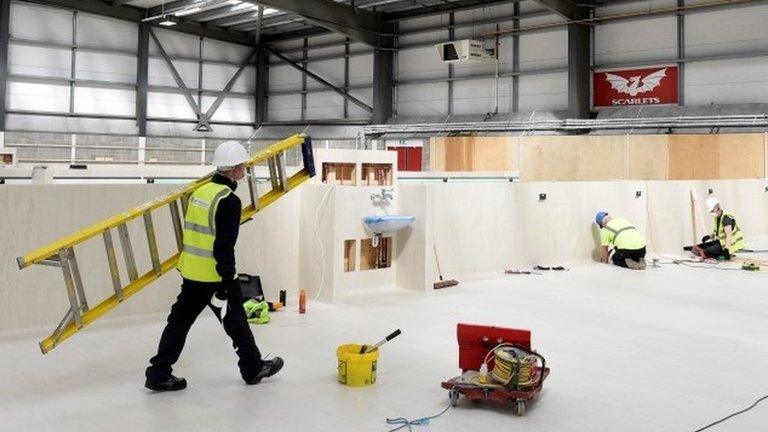Coronavirus: NHS Wales plans 'cautious' steps to normality
- Published
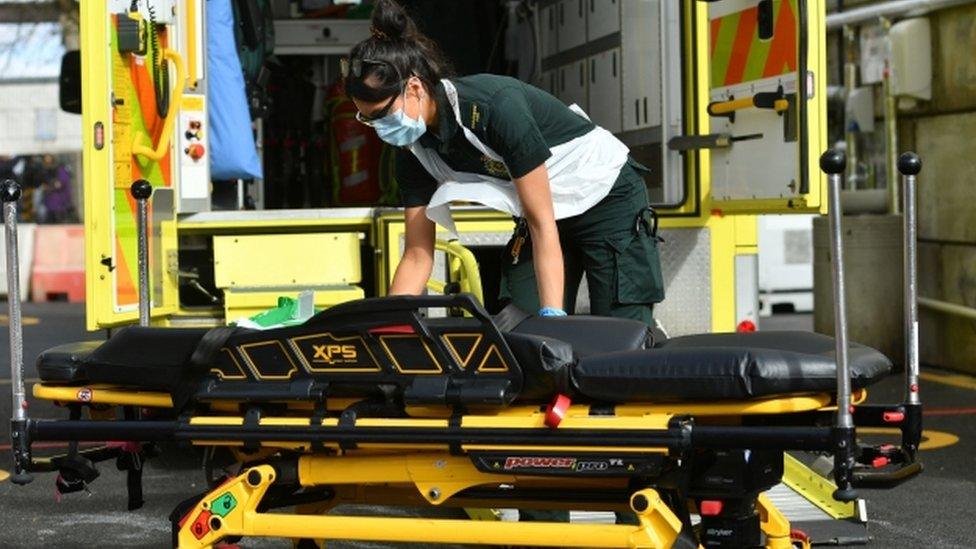
The NHS in Wales must maintain its state of readiness for future coronavirus peaks, the health minister has said.
Vaughan Gething said detailed plans were in place to "scale essential activity back up", while addressing the continued impact of Covid-19.
He wants the NHS to move "slowly and cautiously" towards normal activity.
Field hospitals could be used while using private hospitals had already been "helpful", he added.
It follows concerns that patients, even with urgent needs, have not been going to hospital or seeing their doctor during the coronavirus pandemic.
Ministers want to have plans in place so patients will be reassured about using the NHS, even as it still treats a significant number of Covid-19 patients.
"This will not happen overnight as people are naturally cautious, but the NHS is there for everyone as it has been throughout the pandemic," said Mr Gething.
The plans for the next month include dividing up hospitals into areas of high and low coronavirus risk to ensure patient safety.
Extra capacity from private hospitals had been "helpful" for some treatment, however he said their use would need to be reviewed.
Mr Gething also told members of the Senedd it was a "real positive" that the NHS had not needed to make significant use of the 19 field hospitals during the initial wave of Covid-19.
How to make best use of that capacity in future is being reviewed.
NHS Wales chief executive Dr Andrew Goodall said that although surgery would not be carried out at field hospitals, they could still help look after patients as part of their recovery and free up acute beds and enable operating theatres to be "as fully deployed as possible".
It comes as Public Health Wales figures show on a rolling average that daily reported deaths have fallen to single figures for most of the last week.
Mr Gething has also set out how each health board across Wales has been adapting already:
Aneurin Bevan University Health Board
A "significant amount" of local surgery has been maintained and life-saving services have been "performing strongly"
Cancer services continue to be a key priority and patients are waiting less time for initial outpatient appointments
The situation "remains challenging" with access to specialist surgical and oncology services
Safeguarding referrals for children have fallen significantly and the health board is considering "multiple factors" behind this
Betsi Cadwaladr University Health Board
Waiting lists are being monitored to identify patients needing urgent treatment
Urgent dental centres and an optometry network have been set up
More electronic consultations with outpatients have led to a 30% reduction in face-to-face orthopaedic demand
New video consultations now account for 85% of GP appointments
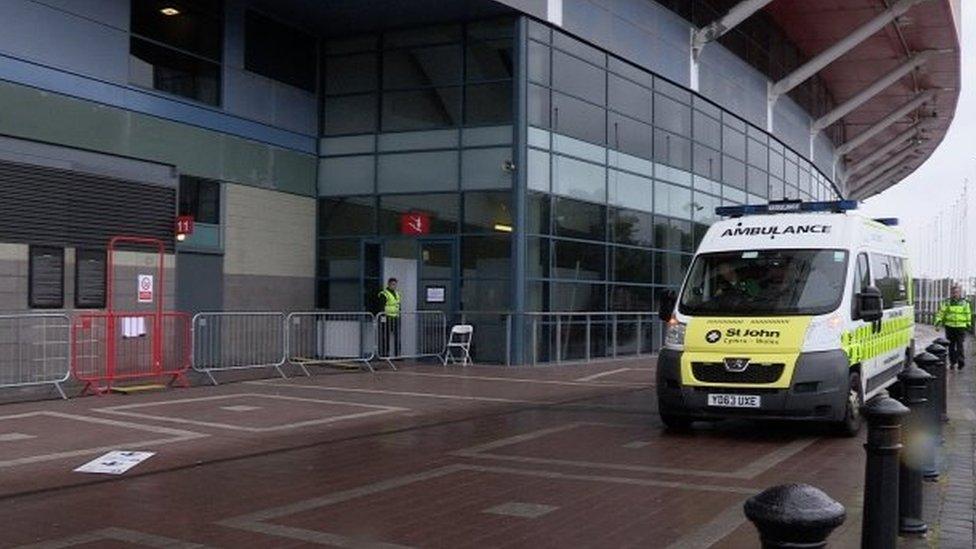
The Dragon Hospital in Cardiff has been set up at the Principality Stadium as a field hospital
Cardiff and Vale University Health Board
A plan in place gives it the ability to "gear up and gear down" to respond to changes in demand
More remote consultations with GPs
The Dragon's Heart field hospital at the Principality Stadium is providing additional hospital capacity as a "step down" facility for coronavirus patients
A Spire private hospital can provide capacity for cancer and other surgery, outpatients, endoscopy and cardiology.
It feels "well placed" going into the next phase
Cwm Taf Morgannwg University Health Board
A clear plan to use field hospitals
Emergency medicine supply has been improved and there is a delivery service of essential medicines from acute care to homes
"Encouraging" working within the community and voluntary sector
"Clear plans" to separate Covid-19 and other patients so they can continue to bring patients in for the treatments they need
"Robust" plans for staff support and well-being, recognising that rest and recuperation is paramount
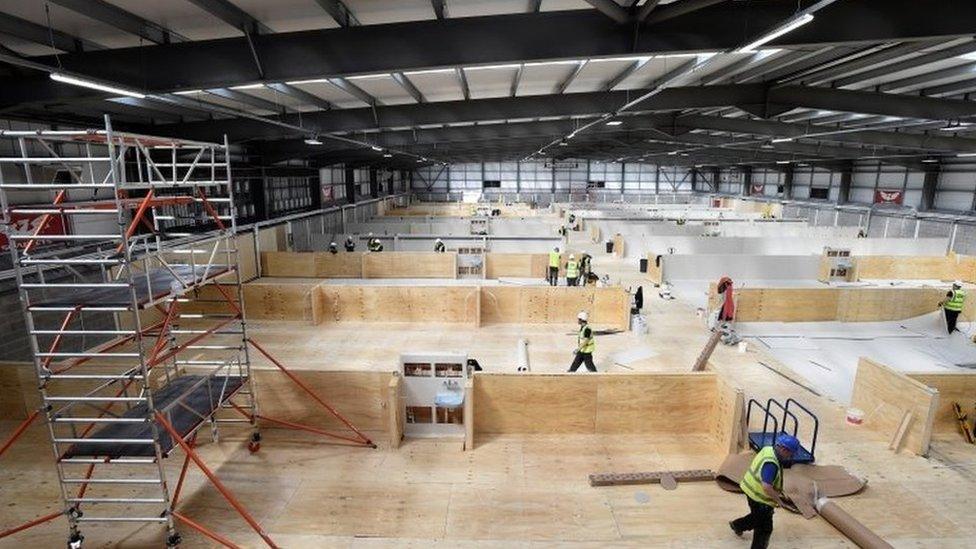
The field hospitals, like this one at Parc y Scarlets in Llanelli, will be on stand-by for a potential second wave
Hywel Dda University Health Board
A detailed cancer services contingency plan that includes chemotherapy over three sites
"Significant emphasis" on GP services, using technology to bring in new ways of working, including virtual or telephone consultations
General surgery, colorectal, breast, urology, gynaecology and ophthalmology services have been relocated to a local private hospital
The health board has "fortunately" not seen the anticipated demand and will use field hospitals in reserve for any potential second surge, as "step down" facilities
Powys Teaching Health Board
There are red or green areas for coronavirus and other patients
Private hospital capacity is available in Wales and across the border
Capacity is in place to support patients being discharged from hospital for step-up and step-down support with care homes
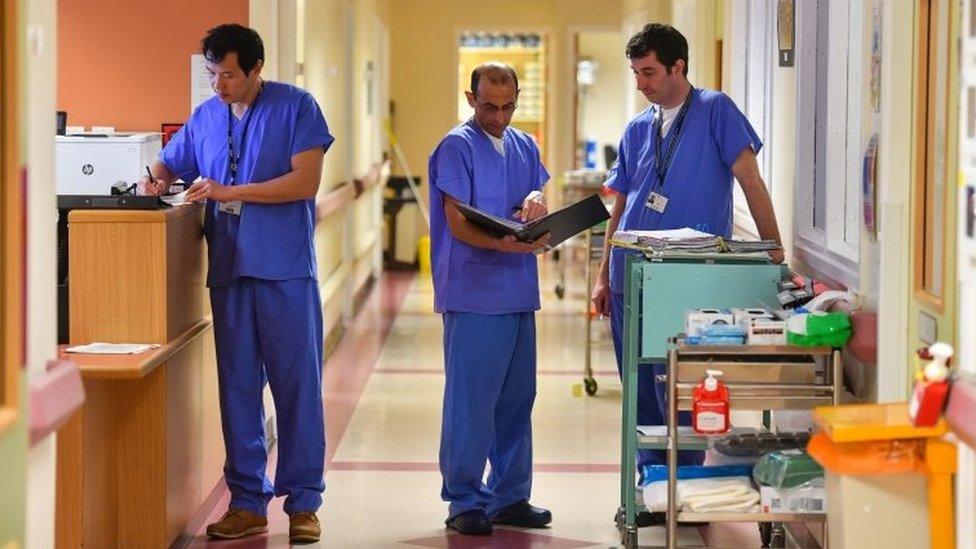
Swansea Bay University Health Board
There are red or green areas for coronavirus and other patients
Some specialised services are run in partnership with the Cardiff and Vale board
Full training programme for staff in working in intensive care functions
Remote working is being maximised via mobile devices
Welsh Ambulance Services
Improved response times and hospital handover delays reduced significantly, as a result of lower demand
Recruitment and training is a priority. Fire and rescue services have also been working closely with the ambulance service and have provided support
Changes include limits on the numbers of patients per vehicle, screens and the separating of suspected and confirmed virus patients
Velindre NHS Trust
Working to increase urgent diagnostics and treatment for cancer, radiotherapy for category one patients and emergencies
Greater use of technology for staff and patients, with working from home up 30% and similar increases in video consultations with patients
The Welsh Blood Service is producing convalescent plasma and is involved in the international dispatch of cryo-preserved cells
A "strong approach" to ensuring separation of areas for managing Covid-19 patients
Patients have been recruited for a trial to test potential Covid-19 treatments
Mr Gething said health boards needed to demonstrate they could be "agile and flexible" and able to divert resources, "easily and quickly" to adjust to the demand between Covid-19 and non-covid essential service areas".
Dr Goodall said as staff would be operating with PPE compliance and other requirements in place, everyone needed to be realistic.
"We will have slower numbers of patients perhaps coming through than we normally achieve within our system, and we will be working really closely with our clinical and our surgical teams on what they think is possible," he added.
- Published28 May 2024

- Published2 June 2020
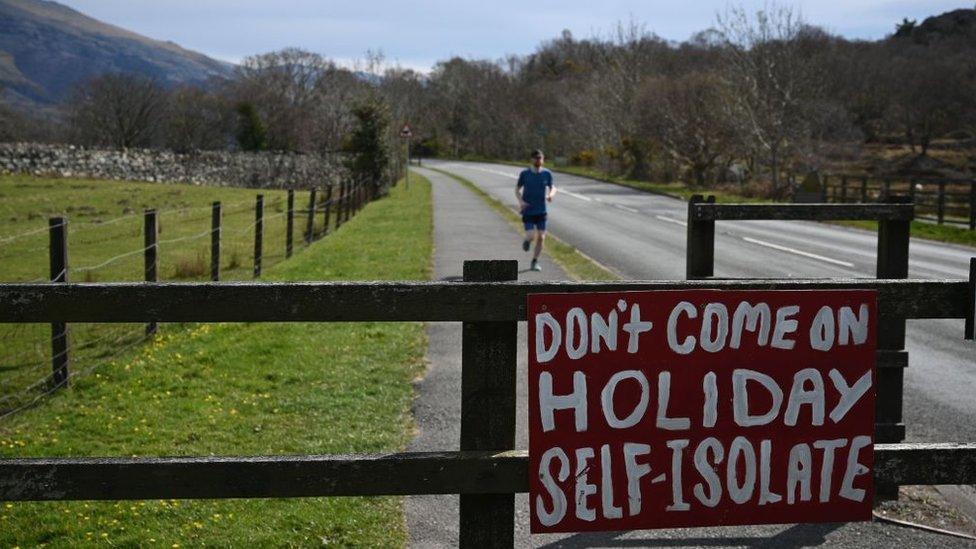
- Published4 May 2020
